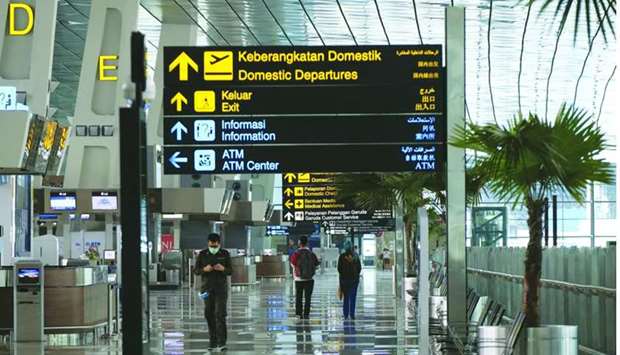Economies have to open up, people have to work and trade has to resume, a medical expert at World Health Organisation (WHO) recently said, emphasising it is “almost impossible” to maintain border closures for the foreseeable future due to the impact on the global economy.
|
Beyond the Tarmac
Twitter: @PratapJohn
|
WHO Emergencies Programme head Mike Ryan said travel bans are not sustainable.
“It is going to be almost impossible for individual countries to keep their borders shut for the foreseeable future. Economies have to open up, people have to work, trade has to resume,” Ryan said.
Throughout the pandemic, the WHO has urged countries not to introduce blanket border closures due to the knock-on effects on trade, the economy, humanitarian aid work and everyday life.
Dr Ryan emphasised that measures including health checks on travellers and rigorous contact tracing could mitigate the chance of spreading Covid-19 across international lines.
As the world is fighting to get out of the grips of the Covid-19 pandemic, the aviation industry goes through an unimaginably difficult time, seeing demand destruction, burning through cash and struggling to stay afloat.
Air travel has fallen on hard days since the onset of the coronavirus pandemic six months ago, with the number of travellers dropping significantly around the world.
Some governments have cautiously re-opened borders since then, but there has been limited uptake because either quarantine measures make travel impractical or the frequent changes in Covid-19 measures make planning impossible.
Meanwhile, the Covid-19 pandemic continues to devastate the aviation industry. International traffic has all but disappeared – the airline industry is carrying only about 10% of normal levels, according to the International Air Transport Association.
Domestic travel is picking up in some markets, but this is not enough to sustain the industry.
The crisis is threatening some 4.8mn aviation jobs, IATA warns. The rupture in global air connectivity puts at risk at least a further 41.2mn jobs across the travel and tourism sector.
And that is not even counting the impact on trade and other cross border businesses that cannot function normally without the connectivity provided by aviation.
The industry’s continuing financial trauma cannot be ignored, points out Alexandre de Juniac, IATA director general and CEO.
At a recent global media online briefing, de Juniac said, “Many governments have done a good job in financially supporting aviation jobs. Where this has not happened – in Latin America for example – we see bankruptcies.”
He said, “Most government aid packages were put together assuming that the industry would be in recovery by now. The recovery has not happened. And airlines will struggle to make it through the normally weak northern hemisphere winter season. So we have renewed our call for financial support. And it is urgent.
“As we said last week, airlines continue to burn through cash and that is expected to persist into next year. Without a second tranche of financial aid, many airlines will not make it through the winter. Ramping up the industry when the recovery happens will be challenging enough. If airlines need to be resurrected from bankruptcy, the pain of the economic recovery will be extended with severe consequences for employment in the sector and beyond.”
At Tuesday’s online media briefing, the Airports Council International (ACI) World and the International Air Transport Association (IATA) reinforced the urgent call for governments to use testing as a means to safely re-open borders and re-establish global connectivity and to prevent the systemic collapse of the aviation industry with non-debt generating financial support.
The dual measures would protect countries from the importation of Covid-19 cases, avert an employment crisis in the travel and tourism sector, and ensure that the critical aviation structure remains viable and able to support the economic and social benefits on which the world relies.
Job losses—inside and outside the industry – mount with each day that borders are closed. And with each job lost the recovery and impact on the broader economy becomes even more difficult.
The Covid-19 pandemic remains an existential crisis for airports, airlines, their commercial partners and the industry as a whole.
Therefore, re-opening borders safely (without quarantine) by using a co-ordinated approach to testing would boost the entire economy and be a revenue lifeline for airlines and airports around the globe.
Airlines must be financially viable for aviation to be able to lead the recovery. A robust aviation industry would certainly help kick-start the global economy, bring back much needed jobs, gear up development and alleviate rising poverty in many countries.


